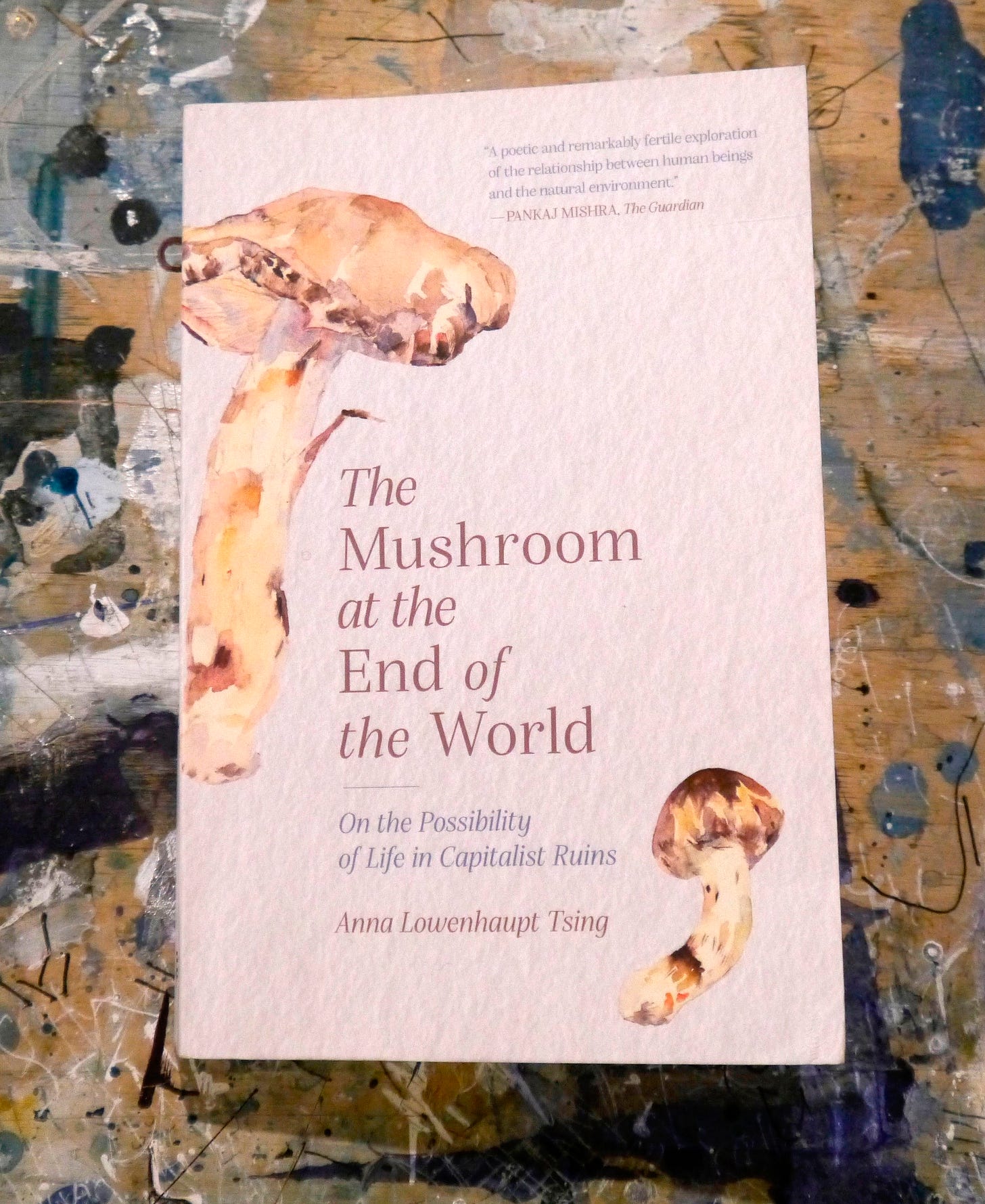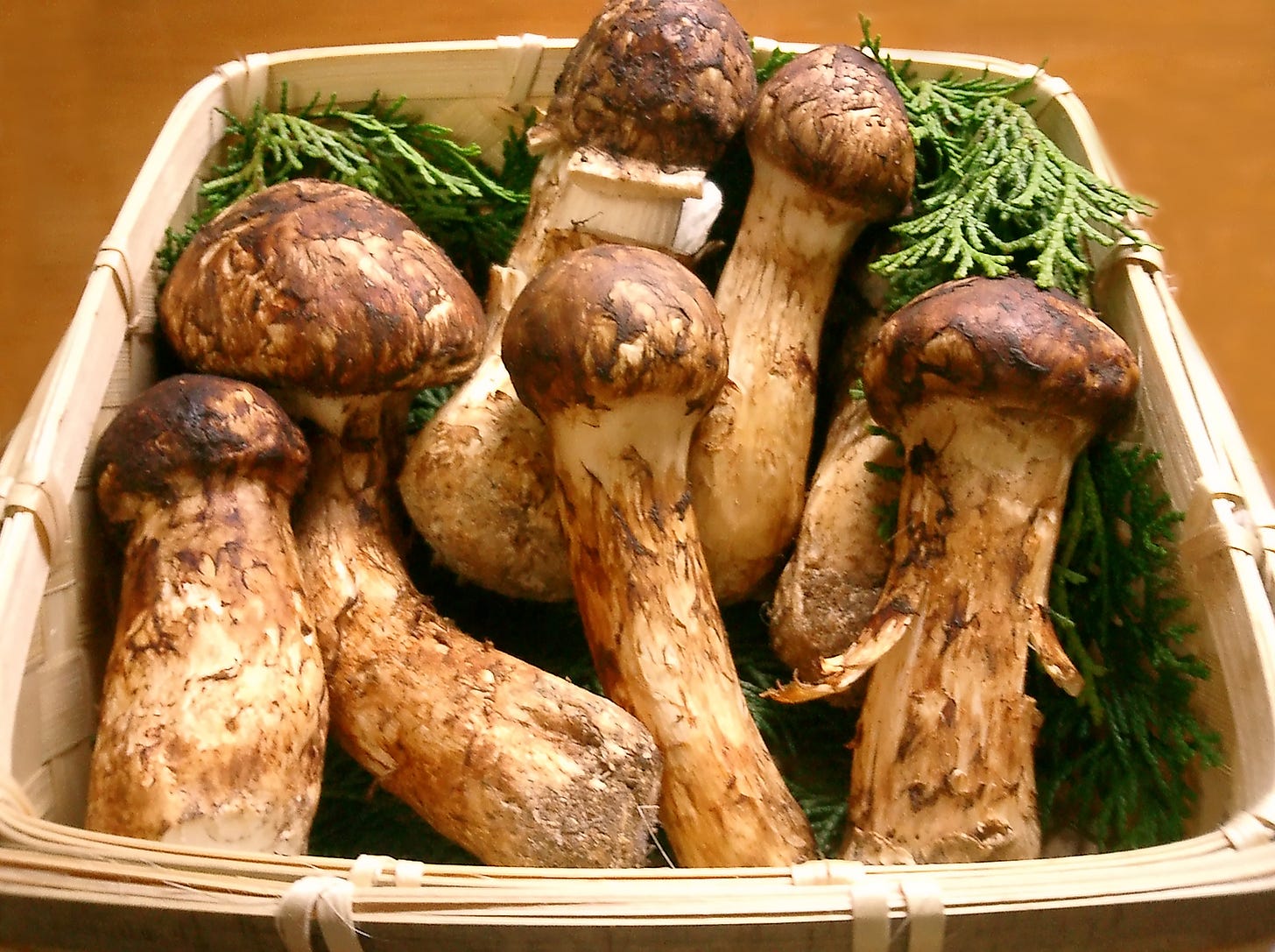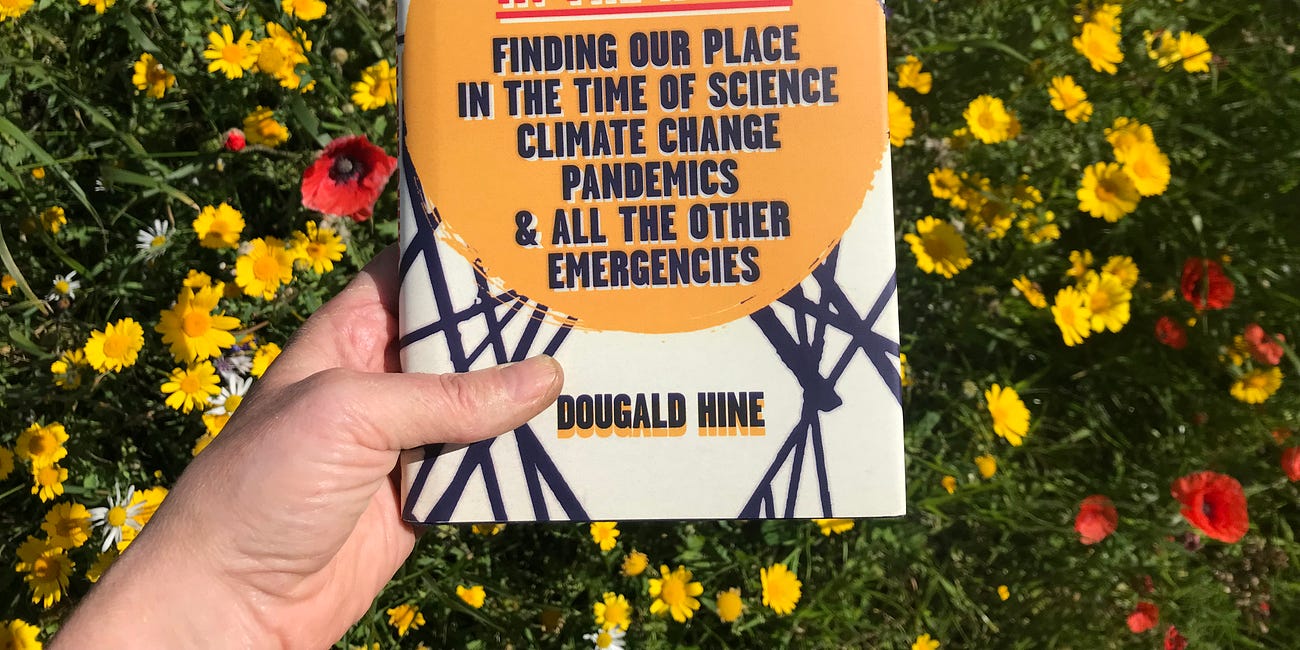Hello friends
As the devastation of LA has been unfolding in the news, I’ve been reading a book that has been waiting for quite some time on my to-be-read pile: “The Mushroom at the End of the World.” The subtitle, “On the Possibility of Life in Capitalist Ruins” seems…pertinent. It’s a clever book that, like the titular fungi, connects far more beneath the surface than appears from above.
The author, Anna Lowenhaupt Tsing is a Chinese-American anthropologist. She traces the lengthy supply chains of the gourmet ‘matsutake’ mushroom from the regrowth forests of Oregon, where they are harvested by intinerant pickers, to the smart restaurants in Japan that serve them as costly delicacies. Through this, she explores the precarious human livelihoods that emerge amid the ruined industrial landscapes that characterise our age of environmental disruption, economic decline and the global supply chains of late Capitalism.
We’ve been raised, Tsing argues, on dreams of the steady forward march of progress. We expect economies to grow, for science to advance, for life expectancy to extend. Even our personal dreams and aspirations are framed in these terms. But, increasingly, we see where that dream of progress has led us, as we watch it grind to a juddering halt amid smoking ruins.
We need a new kind of story now, one that relinquishes modernist ideas of linear progress towards a utopian future. Tsing acknowledges: “It’s hard for me to admit there might not be a collective happy ending. Then why bother getting up in the morning?”
Tsing finds an unexpectedly hopeful answer to this question in the ramshackle assemblages of human and nonhuman activity that gather around the matsutake mushroom.
“The most valuable mushrooms on earth”, matsutake are prized as gourmet treats and exclusive gifts in Japan. Matsutake mushrooms cannot be farmed. They spring up unpredictably, and only in forests that have been continually disturbed by humans. Now rare in Japan, where urbanisation has seen the decline of the open, peasant-cultivated woodlands that once supported them, they now flourish amid the scruffy secondary regrowth of the once majestic forests of Oregon, an ocean away.
Tsing draws on the ecological concept of ‘assemblages’ to tell this new kind of story. A more fluid and porous term than ‘community’, an assemblage can include both human and nonhuman participants. An ‘assemblage’ is open-ended, provisional and lively, a gathering of precarious lifeways that can spring up amidst destruction, like fungi after rain. She asks:
If history without progress is indeterminate and multidirectional, might assemblages show us its possibilities?
The specific assemblages that gather around the matsutake mushroom serve as a lesson on how we might live together in a world of ruins. By undermining the linear story of ‘progress’, Tsing shows us that a ruin is not an ending; the clearfelled ponderosa forests of Oregon find new ways to flourish by giving way to a precarious and shifting assemblage of lodgepole pine, matsutake mushrooms and an eclectic band of pickers, buyers and wholesalers.
This precarity is the new reality we must adapt to. It is, Tsing says “the condition of our time”. For her, precarity is “the condition of being vulnerable to others.”
It is an insecure condition, certainly, but it is not without potential, not without hope. Precarity is not the same as decline. It’s more diffuse and open-ended than such linear narratives allow.
The modern human conceit is not the only plan for making worlds: we are surrounded by many world-making projects, human and not human.
We don’t get to dictate how this story works out. We can only participate.
Reading Anna Tsing’s book makes me realise how much of my own understanding of climate change is based on a linear narrative of progress and decline. We have failed to achieve the goal we have been set up for, to progress steadily towards making life better for the next generation, leaving them to scratch around in the ruins of all we could not save.
But, like Dougald Hine’s “At Work in the Ruins”, and Jenny Odell’s “Saving Time”, Anna Tsing’s story of mushrooms helps me to understand that we may live in a condition of precarity, but that is not the same as hopeless final decline.
I’ll add it to the ragbag of useful ideas I’m foraging for. You might find these ones useful too:
More books like this…
The path to the future is made by walking.
I’ve been finding it hard to sleep lately. Maybe you’ve been the same.
Clock time or rock time?
Thinking of time as a clock that is steadily running down to midnight reduces our sense of agency and possibility. The resolution Odell reaches isn't a simple happy ending, but something embodied and enmeshed with the ongoingness of the world.
The Life Raft Creative Co-Working
If you’d like some support and gentle accountability to help you focus on your creative work, do come and join us. We meet at 3pm UK time every Wednesday. It’s free. We start with a quick hello chat and share what we’ll be working on, then leave our cameras on and work quietly together for an hour or so. A recording of the previous week’s session shared each Monday on the paid subscriber chat. (Except last week I forgot to hit the record button - doh!)
There won’t be a Life Raft session next week as I will be on my way to Edinburgh for the opening of In Orcadia at the Royal Scottish Academy that will feature my new paintings. Exciting!
And that’s all for this week,
Sam










AT LAST I CAN SPEAK!
Hehe just kidding, thanks so much Samantha, that was a fascinating listen/read. I think I'll read the book. I love the idea of precarious assemblages, after all, if you remove all the talk isn't that just what we all are? Also the reluctance to accept linear thought, reminded me of David Graeber somewhat, and The Dawn Of Everything. Anyway, thanks great stuff.
Thanks for writing about this book. I read it a few years ago and found it fascinating and also hard to understand at times. Probably due to how ingrained my thoughts are around progress. We are indeed in precarious times so I may need to give it another read.